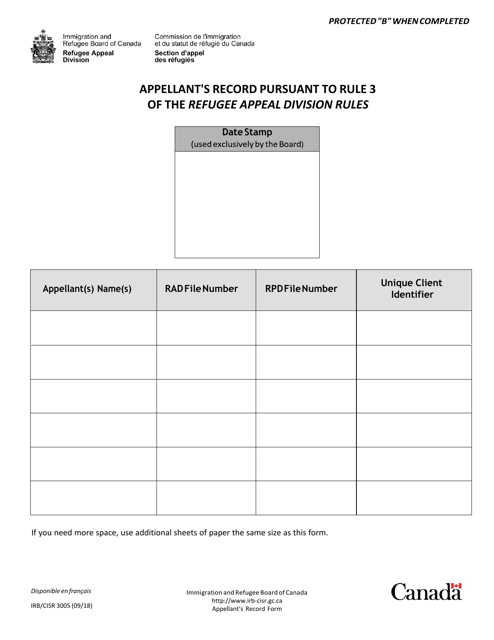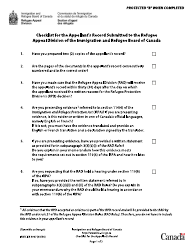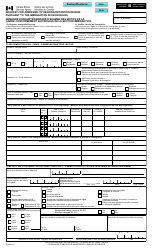Form IRB / CISR3005 Appellant's Record Pursuant to Rule 3 of the Refugee Appeal Division Rules - Canada
Form IRB/CISR3005 Appellant's Record Pursuant to Rule 3 of the Refugee Appeal Division Rules in Canada is used for the purpose of an appeal in the Refugee Appeal Division. A person who has had their refugee claim denied by the Refugee Protection Division can file an appeal to the Refugee Appeal Division. The Appellant's Record, which includes Form IRB/CISR3005, is a document that contains the necessary information and evidence to support the appellant's case during the appeal process. It provides an opportunity for the appellant to present additional arguments and evidence to challenge the decision made by the Refugee Protection Division.
In Canada, the Form IRB/CISR3005 Appellant's Record is filed by the appellant themselves. The appellant, who is seeking to appeal a decision made by the Refugee Protection Division, is responsible for submitting this form and the necessary supporting documents to the Refugee Appeal Division.
FAQ
Q: What is IRB/CISR3005?
A: IRB/CISR3005 refers to the Appellant's Record document that is filed with the Refugee Appeal Division (RAD) of the Immigration and Refugee Board of Canada (IRB).
Q: What is the purpose of filing IRB/CISR3005?
A: The purpose of filing the IRB/CISR3005 Appellant's Record is to present the appellant's case and supporting evidence to the RAD during the refugee appeal process.
Q: What is Rule 3 of the Refugee Appeal Division Rules?
A: Rule 3 of the Refugee Appeal Division Rules outlines the requirements and procedures for filing the Appellant's Record, including the contents and format of the document.
Q: Who files the Appellant's Record?
A: The appellant, or their authorized representative, is responsible for filing the Appellant's Record with the RAD.
Q: What is included in the Appellant's Record?
A: The Appellant's Record typically includes a completed Form IRB/CISR3005, a written submission outlining the appellant's arguments, supporting documentation such as affidavits or country condition reports, and any other relevant evidence.
Q: What is the role of the RAD in the refugee appeal process?
A: The RAD is an independent tribunal that reviews decisions made by the Refugee Protection Division (RPD) of the IRB. It considers the appellant's case, evidence, and legal arguments to determine if the RPD decision should be upheld or overturned.
Q: What happens after filing the Appellant's Record?
A: After filing the Appellant's Record, the RAD will schedule a hearing to consider the appeal. The appellant and their representative will have an opportunity to present their case orally and answer any questions from the RAD member(s).
Q: Can an appellant have legal representation during the refugee appeal process?
A: Yes, an appellant has the right to have legal representation or an authorized representative assist them in preparing and presenting their case before the RAD.






















